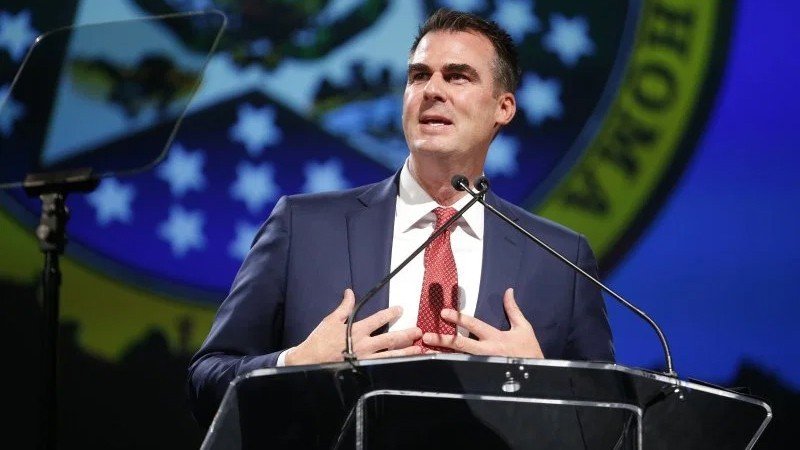Oklahoma Gov. says tribal casinos will operate illegally without new compact, commercial casinos interested

Indicating that the state and American Indian tribes may be headed for an impasse, Oklahoma Governor Kevin Stitt on Dec. 5 attempted to apply a deadline to renegotiate the tribal gaming compacts.
The governor also said commercial casino operators are very interested in Oklahoma if the state and Native American tribes can’t strike a new deal on gaming compacts. He said he’s personally talked with commercial operators who have told him they’d sign a deal tomorrow to open up a casino, and they’ve offered to pay the state 18% in taxes. “Let’s open it to everybody then,” Stitt said, Enid News & Eagle reports. “What is operating a casino worth to have (the) exclusive right to do that?”
Stitt suggested that the tribes could not operate after Dec. 31 with an expired contract, and said in his statement: “Are they going to be operating illegally Class III (non-electronic bingo) games? That brings a whole host of issues with vendors,” Cherokee Phoenix reports.
Under the active compact, tribes in Oklahoma receive exclusive rights to casino gaming in the state in return for giving the state a cut of the revenue; generally ranging from 4% to 10%. Stitt has suggested the tribes pay rates as high as 25 percent, pointing to other states where tribes pay a higher percentage for gaming rights.
Tribes in the state have countered that revenue, competition, personal income and state population are assessed by other states when determining what tribes should pay under compacts. “The governor is wrong,” Principal Chief Chuck Hoskin Jr. said. “He doesn’t have to take my word for it. He can take the word of outside observers such as (former) Gov. Brad Henry, who negotiated the compact.”
Hoskin insisted that the compacts are about to expire and must be renegotiated, but having no legal precedent on which to stand. “It is not helpful, productive or good-faith bargaining, which the tribes have always been willing to do,” he said. “We are not going to bargain a compact with a phony deadline above our heads. It is important for the Cherokee people to understand that Jan. 1 will look the same as Dec. 31. We will continue to lead the state in gaming, and we will continue to wait for the governor to back off on an expiration date and get back to really discussing the compact.”
Observers around the state are not certain what Oklahoma would do to enforce any closure of the casinos without violating tribal law and sovereignty. However, the state could file lawsuits. Other tribes have also indicated they will not discuss changing the rates unless Stitt acknowledges there is no deadline – that the compacts automatically renew Jan. 1.
Though he is pressing hard to renegotiate, Stitt said he hoped to avoid legal action, but did not offer any ideas about what the tribes might receive in return for paying higher rates to the state. “I am trying to be a good-faith partner and not negotiate in public...” he said. “The truth is on our side. I feel so confident that Oklahomans can see right through a certain industry, the casino industry, saying, ‘These go on forever.’ That can’t be true.”
Gov. Bill Anoatubby of the Chickasaw Nation, which is the largest gaming tribe in Oklahoma, recently informed the Department of the Interior that any attempt to suspend Chickasaw gaming operations would be an “intolerable risk” to the tribal government and its citizens.
Matthew Morgan, Oklahoma Indian Gaming Association chairman and executive officer for policy development and gaming for the Chickasaw Nation, said state relations with tribal governments could endure long-term negative effects if both sides fight it out in the court system. He added that even an agreement before Jan. 1 would require the approval of the U.S. Interior and legislative endorsements.
Oklahoma’s 141 casinos have an economic impact of nearly $9.8 billion and support nearly 76,000 jobs, according to an American Gaming Association analysis. The state’s casinos generated gross gaming revenue of $4.5 billion, according to national trade group that represents the U.S. casino industry.

















